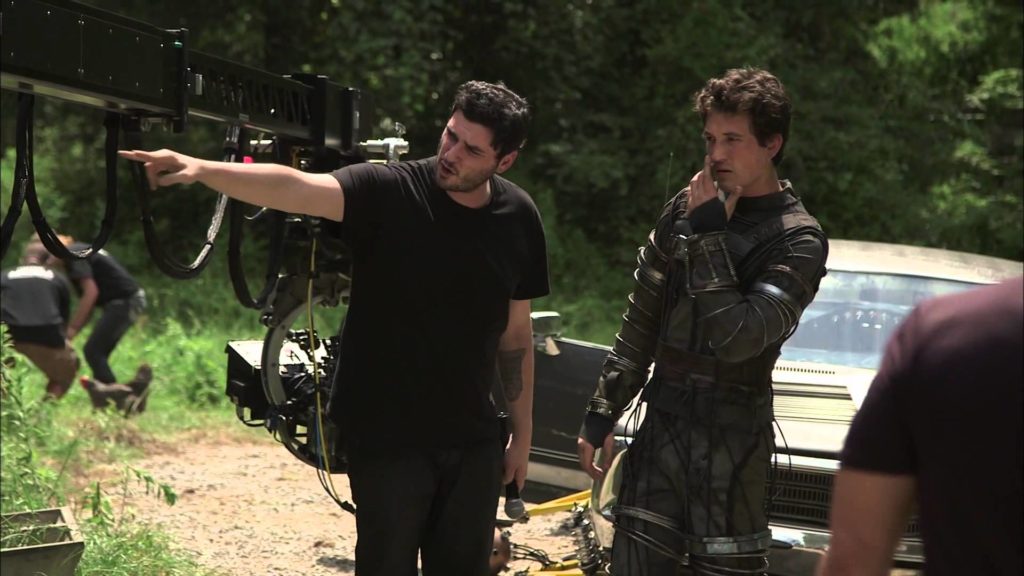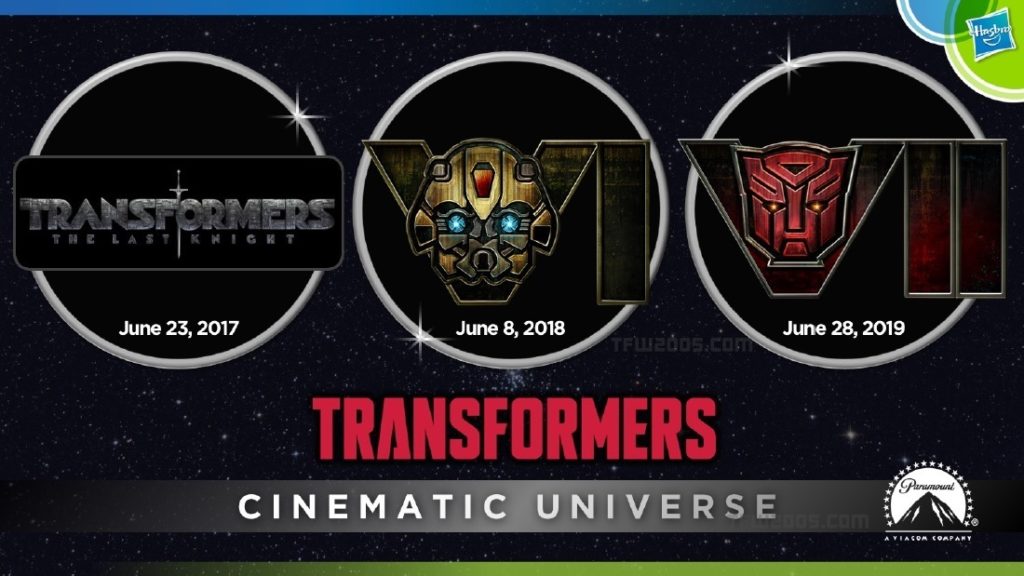For as long as film has existed, directors have had the strongest influence on the shape it takes. While movies are undeniably a collaborative effort with far too many hands involved, it is the director who ultimately takes a final call on some of the most critical elements that lend the movie a unique voice. In no era has this been truer than in the Golden Age of Hollywood and a few years beyond which saw the emergence of such distinct directorial names as Martin Scorcese, Alfred Hitchcock, Ridley Scott, Stanley Kubrick and Steven Spielberg.
The last decade or two though have been a different story. Every since Bryan Singer’s X-Men hit cinemas worldwide in 2000 followed by Sam Raimi’s Spider-Man in 2002, there’s been no stopping the onslaught of superhero movies hitting the big screen. This same time frame also saw Peter Jackson’s The Lord of the Rings trilogy embrace the big screen as well as the start of a decade long series of Harry Potter films with 2001’s Harry Potter and the Sorcerer’s Stone, both of which opened up the market for new-age fantasy flicks. And suddenly every studio wanted to have at least one big tentpole lined up for release each year.
Fast forward a few years and Marvel reinvented the game once again with the release of Iron Man and The Incredible Hulk, both in 2008. And when Nick Fury showed up in the post-credits scene of Iron Man, talking about the Avengers Initiative followed by Tony Stark himself making an appearance in The Incredible Hulk, audiences were effectively being prepared for an unprecedented level of interconnection in films that exploded in 2012’s The Avengers. And since then everyone from Warner Bros. & DC to Lucasfilm and Fox and Sony have been clamoring to get their own “shared universes” started, birthing a new concept of a franchise of films that could go on endlessly instead of needing to be rebooted after every 3-4 entries.
All this has left the role of film directors in an interesting predicament: In these tentpole movies, are directors even relevant anymore? Or are they merely cogs in the machine chugging along in their duties like any other employee just getting the film made? How much of a unique voice do they even have in the complicated and expansive production process? And are they even that important or are they simply replaceable and interchangeable?
That last point has never been more pertinent. The past few years have seen a string of high-profile departures and replacements from movies in these very franchises with the publicly cited reason almost always been a separation “over creative differences”:
- Edgar Wright left Ant-Man after being involved with it for around eight years. After some speculation, Wright himself opened up about the reason for leaving the project which had to do with Marvel bringing in another writer to work on the script fairly late in the process, something which obviously didn’t sit well with Wright who had worked on the original draft with writer Joe Cornish.
- Joss Whedon who gave Marvel a huge head-start by directing the $1.5 billion grossing Avengers and its sequel Avengers: Age of Ultron (which made an almost equal amount of money) also left the Marvel Universe after his contract was done. Joss had been quite vocal about huge clashes of opinion with Marvel’s creative team during the making of Age of Ultron having required to succumb to the studio’s desires in order to retain parts of the film he loved the most.
- Last year’s Rogue One: A Star Wars Story saw Tony Gilroy being roped in to assist director Gareth Edwards in reshooting some material for the film for the satisfaction of Lucasfilm executives who were worried that the film had too much of an indie-movie vibe as opposed to feeling like a Star Wars story.
- The DC Extended Universe has had a string of departures of its own for varying reasons. Ben Affleck was initially going to both write and direct The Batman only to have the reigns be handed over to Matt Reeves. The Flash has lost two directors into the pre-production process and is currently without a release date. David Ayer faced a lot of studio interference in Suicide Squad in the editing room. And Joss Whedon has been roped in to reshoot portions of Justice League after original director Zack Snyder left the project during post-production (though his departure was due to personal and not creative reasons).
- Directors Phil Lord and Chris Miller who were working on the Han Solo Star Wars spin-off (now titled Solo: A Star Wars Story) also parted ways through the middle of the project over huge clashes of opinion with Lucasfilm head Kathleen Kennedy. Reports suggest they were fired from the set. Ron Howard (director of Dan Brown’s novel adaptations Angels & Demons, The Da Vinci Code and Inferno) has been brought in to finish the movie for a targeted May 2018 release.
- A few days back, Star Wars Episode IX director Colin Trevorrow parted ways with the studio again citing differences of vision. Episode VII director J. J. Abrams will now direct the movie.
All of this begs the question of how important these directors are to franchises? The industry norm seems to have shifted towards following the visions of producers and executives rather than directors. For instance, the Marvel Cinematic Universe could very well exist without Edgar Wright or Joss Whedon or perhaps even Anthony and Joe Russo, directors of the upcoming Avengers movies. But would it be where it is without chief architect and producer Kevin Fiege? Likewise, would Star Wars even be happening right now were it not for Kathleen Kennedy and / or the executives at Disney?

Josh Trank’s infamous conflicts with 20th Century Fox resulted in the disastrous Fantastic Four reboot
What further weakens the case against directors is how similar the different movies look and feel. Directors like Spielberg, Cameron and Scorcese have very different directorial styles; one could almost tell if you’re watching a Spielberg movie or a Scorcese film. These franchise films on the other hand are largely similar in tone and style and at times, even music and color grading. Which basically means the new directors, rather than bring something to the table, simply call the shots and “get things done” instead of adding their own flair. They’re hired not necessarily for the freshness they bring to the table but mainly because of their knowledge of film-making which will ensure they hand over the studio a finished product according to the demands of the franchise.
A good example of this is The Fast and the Furious franchise. I was recently watching the eight installment in the movie (kind of late, I know) and realized that despite managing to have picked up the director of an acclaimed film like Straight Outta Compton, F. Gary Gray didn’t add anything to the movie. It followed a template very similar to the previous movies in the franchise and I realized instead of him, anyone could have directed The Fate of the Furious. The fifth to eight movies in the installment look very similar in terms of their styles and its hard to say they’ve been helmed by three different directors.
Of course it’s all great for the studios running the show. It essentially proves that the characters and the franchise are really the shining stars and outlast the people behind them. It also gives the studios more room for negotiation and frees them to hire relative unknowns to direct big-budget tentpoles, unknowns who the studio executives would be better able to pressure into doing things their way should the need arise. This is precisely what factored into Joss Whedon helming The Avengers and Colin Trevorrow helming Jurassic World. In both cases the relatively unknown directors (at least until then) were granted the reigns of major franchise movies and the success of the movies led to an explosion of their popularity. In some cases, it works out well for the directors as well as they end up being tied to franchises for a long time. Michael Bay for instance has stuck with the Transformers franchise for over a decade now and Bryan Singer will soon complete 20 years with the X-Men franchise. Would it be wrong to say that these franchises are their bread and butter?

Michael Bay revealed earlier this year that at least 14 Transformers films are planned ahead
Even so, all this doesn’t help the viewer shake the feeling that all films feel the same. True, films within the same universe ought to have some level of consistency but go on this way for too long and you run the risk of alienating your audience, more so if it reaches a point where you know exactly what to expect from a movie. Once in a while, you’ll have an auteur like Christopher Nolan who’ll successfully bring his own vision to a giant franchise, changing it forever. But it seems directors of his caliber are mostly sticking to making franchise independent films which free them from constraints of continuity and the expectations of studio executives save for making a profit (Nolan himself dissuaded DC executives from making his Batman movies an extension of their shared universe). With franchises, there are simply too many people to please and too many to not offend to hand over the job to someone experienced, one who’ll lend characters his own voice. Ask Zack Snyder, who tried that with Batman v Superman by trying to deconstruct the heroes, only to end up being deconstructed by the moviegoing audience.
Play safe seems to be the mantra these days and will continue to be, as long as these movies keep grossing a billion dollars and more. And as long as studios want to play safe, directors are bound to be confined to second precedence when compared against the franchise in question.





